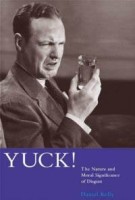Random
In the In
Last week, I had this awesome conversation with a grad student about theory. And he was like, Have you read this guy?, and I was like, Who?!
And so I come to my problem: What is going on in theory these days?
When you’re in school – in school like a student – you get this fab readings lists, from professors, from friends, from other students. You’re always in conversation, whether in the classroom or out of it. Either way, ideas are just around you. All you have to do is listen.
But I’m not a student anymore and the “edge” that I once had seems faded. I used to read and read broadly: history, philosophy, geography, architecture. It was great.
 And I miss it. I want to be a part of the conversation again. And I’d like to start that conversation here.
And I miss it. I want to be a part of the conversation again. And I’d like to start that conversation here.
What are you smart people reading that makes you excited?
Maybe it’s that I don’t want to be left behind, whatever that means.
I just read a very cool book: Yuck!: The Nature and Moral Significance of Disgust, by Patrick Kelly. Disgust Studies: I had no idea it was even happening.
So, tell me what else is happening. Please.


i’ve been way into Nick Land, Laruelle & Sloterdijk lately, plus the continuing mental support provided & compromised by Virilio & the “speculative realists”
plus it’s not like anyone needs to ever stop reading deleuze & guattaribut i those are more philosophy than theory idki like allen s weiss a lot, he is more “purely theory” i think but he hasn’t written a book in a while. david hayman is cool but also hasn’t really done anything “new”idk maybe i should just wait for everyone else’s answers
Thanks, mike! I knew you’d have suggestions! & yeah, D&G, of course. I’ve been reading Virilio too! (yes!)
I recently read “Suicide” by Edouard Leve, and was impressed with the structure. Each paragraph was a memory of a friend who had commited suicide 20 yrs prior, like “picking a marble out of a bag,” He writes. One marble, and one of the few linear sections is a paragraph that covers ~15 pages regarding filling in as a drummer for a friend’s band in a vacation town; he describes the 3-day visit in one paragraph. This book is the one where the author kiiled himself ten days after turning in the book, and the “you” (friend who commited suicide) seems to be the author himself, or he closely connects with him.
I also read 2 novels by Hubert Selby Jr. “The Room” and “Waiting Period”. “The Room” was his follow up to “Last Exit to Brooklyn” and takes place in a solitary jail cell as a man’s pathos, written in the 3rd person, goes off on memories and fantasies, of rape, being his own attorney at his trial, going before a senate commity to right the wrong of his arrest, torturing dogs, going crazy in his jail cell, and a zit that he can’t pop that serves as a time keeping device. The reader knows not what he did, what memory is real, what the violent fantasies are true, or suggest to his crime. Yet this unknown element, questioning of his thoughts memories, fantasies, seem troublesome at the beginning are concluded well. “The Waiting Period” is his last book published the year of his death and abt a man who b/c a computer glitch can’t get the gun to kill himself and decided to kill other people. This is 1st person, but deals directly with the pathos of the man–in a crazy way, following his thoughts and perspectives–almost as a huge existentialist yell.
Compared to Tao Lin’s EEE that I had also just read again, the difference and similarity are opposite but focus on characters pathos. How Selby works with pathos of insanity, and writes in a hyper, almost histrionic voice of the killer or prisoner; Lin in comparison writes from the outside of the person, also in 3rd person with a trance like quality that resembles a pathos of thought and action w/o the constant stream of thought going through the characters mind. Selby doesn’t live in a normal world of media and cool, as reading EEE is like talking to your cool bookstore or recordstore friend. Yet he deals directly with the pathos of his character in a very controlled and structural way, as media references, or little sayings repeat. The “Ellen” and “Andrew” character are very similar, and the arc of their stories are similar to each other. When Ellen talks with her mother about going to a movie, it is like “Andrew” is her mother. They see the same hallucitory animals, and Andrew must sense they would be good friends/romantically interests. This works with his other 2 novels, as when Ellen and her mom talk it is like the relationship between Dakota Fanning and her mom in Richard Yates. There is also connections to SFAA in the book I can’t remember, but structurally EEE is amazing, and his 3 novels/novella together form a continuum that feed off each other.
Also the fact the charcter in EEE is called “Ellen” when internet speculation has thought the Dakota Fanning character in RY was based on Ellen Kennedy, though I see her appearing in SFAA when they write sex stories on the way to Mahaatan, but it seems the inspiration for Dakota Fanning is another girl that, like the chracter in RY draws squid and things, which Megan Boyle had linked on her blog before Tao and her were married.
This was more rant than theory, probably.
i’m losing my shit over the existence of disgust theory.
if there are other books please tell me about them everyone.
Lauren Berlant and the studies of affect, sentimentality, and political depression.
Her blog is pretty incredible too. http://supervalentthought.com/
what is teory
In my proseminar at UIC, we’re reading a lot of intentionality stuff (unsurprising, given that my teacher is Walter Benn Michaels). The idea that meaning is what the artist intends (and not, for instance, determined by the reader) is still controversial stuff in many quarters.
There’s also a lot of debate going on as to whether postmodernism is over, or whether it can end, or what it would mean for it to be over. Twentieth Century Literature has a special issue forthcoming on this, called “Postmodernism, Then.” I just read some essays from it.
Affect theory, and other neuroaesthetics theories (which grew out of cognitive studies) are all the rage.
And over in philosophy, you have speculative realism, which has been gaining traction since 2007, and which is making more and more waves elsewhere in the humanities.
Among other things. Marxism’s on the rebound, too, due to the ongoing financial crisis.
I could recommend specific authors/books/articles, but you can also find a lot of stuff by googling these terms.
Cheers,
Adam
I like Eileen Scarry’s “On Beauty and Being Just.” Though it may be anti-theory in some senses. It is very into theory, though.
http://artandpopularculture.com/Reza_Negarestani
Something Michaels just forward us; it’s based on his “Postmodernist, Then” contribution:
http://www.brooklynrail.org/2011/10/art/the-beauty-of-a-social-problem
It shows how some of his thinking is linking up with another UIC professor, Nicholas Brown (whose Marxism seminar I’m also in at the moment; we’re reading Capital, Volume 1).
For what it’s worth,
A
Grounded theory seems to be having a resurgence of interest in my woods-neck.
You’ve been reading some good stuff, Mr. Ian M. Belcurry!
(I started writing something about why I think SFAA is a revision of EEE, and the much better of the two, but it got too long and I’ll just put it up as a post.)
…Have you ever read Scott Zwiren’s God Head? Dalkey put it out in the early-to-mid ’90s. (Fun fact: for a brief period, it was their bestselling title. Or so I was told.) I’d recommend it to anyone who likes Leve and Selby, Jr.; I think it ranks among the best books Dalkey has done.
Cheers,
Adam
Thanks for the recommendation, I’ll check that book out. Also thanks for reading my long comment! I’d love to read the SFAA/EEE post.